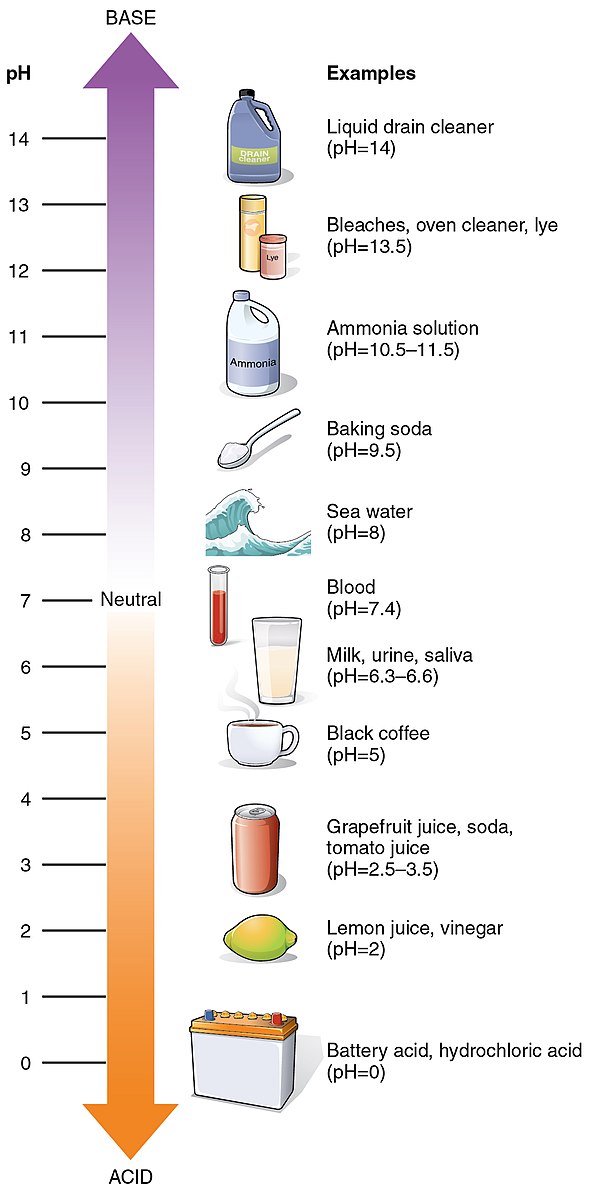The pH value of tap water in Phoenix, Arizona, USA, typically ranges between 7.6 and 8.4, which is considered slightly alkaline and safe for consumption. However, the city’s tap water also faces challenges, such as high levels of hardness and the presence of various contaminants and chemicals.
Understanding the pH of Phoenix’s Tap Water
The pH scale measures the acidity or basicity of a solution, with a range from 0 to 14. A pH of 7 is considered neutral, while values below 7 are acidic, and values above 7 are alkaline or basic. The pH of tap water in Phoenix falls within the slightly alkaline range, which is common for many municipal water supplies in the region.
Factors Affecting the pH of Phoenix’s Tap Water
The pH of tap water in Phoenix can be influenced by several factors, including:
- Source Water: The water source, which is primarily groundwater in the Phoenix area, can have a natural pH level that affects the overall pH of the tap water.
- Treatment Processes: The water treatment processes used by the city, such as disinfection and pH adjustment, can also impact the final pH of the tap water.
- Seasonal Variations: The pH of tap water can fluctuate throughout the year, with changes in temperature, precipitation, and other environmental factors.
Hardness of Phoenix’s Tap Water
 Image source: OpenStax College
Image source: OpenStax College
In addition to the pH, the hardness of Phoenix’s tap water is a significant concern for residents. Hard water is characterized by high levels of dissolved minerals, primarily calcium and magnesium, which can lead to several issues:
- Buildup in Pipes and Appliances: The minerals in hard water can accumulate and form scale, clogging pipes and reducing the efficiency of appliances like water heaters and washing machines.
- Skin and Hair Issues: Hard water can make it more difficult to lather and rinse soap, leading to a buildup of residue on the skin and hair.
- Increased Soap and Detergent Usage: Homeowners may need to use more soap and detergent to achieve the desired cleaning results when dealing with hard water.
Contaminants and Chemicals in Phoenix’s Tap Water
In addition to hardness, Phoenix’s tap water also contains a variety of contaminants and chemicals, including:
- Hexachlorocyclopentadiene: A pesticide that can have negative effects on the liver, kidneys, and nervous system.
- Lindane: An insecticide that has been linked to cancer and other health issues.
- Mercury (inorganic): A heavy metal that can cause neurological and developmental problems.
- Nitrite: A compound that can interfere with the blood’s ability to carry oxygen.
These contaminants and chemicals can have significant impacts on human health and the environment, making it essential for residents to address their presence in the water supply.
Addressing the Challenges of Phoenix’s Tap Water
To address the challenges of Phoenix’s tap water, homeowners can take several steps:
- Install a Water Softener: A water softener can help reduce the hardness of the water, protecting pipes and appliances and improving the overall quality of the water.
- Use a Reverse Osmosis System: Reverse osmosis systems are effective in removing contaminants and chemicals from the water, improving its safety and taste.
- Test the pH Level: Homeowners can use a home testing kit or send a water sample to a professional lab to determine the pH level of their tap water. If the pH is outside the recommended range, they can adjust it using specialized filters or chemical treatments.
By taking these steps, Phoenix residents can ensure that their tap water is safe, clean, and suitable for a variety of household uses.
Conclusion
The pH of tap water in Phoenix, Arizona, USA, generally falls within the slightly alkaline range of 7.6 to 8.4, which is considered safe for consumption. However, the city’s tap water also faces challenges, such as high levels of hardness and the presence of various contaminants and chemicals. To address these issues, homeowners can install water softeners, use reverse osmosis systems, and test the pH level of their tap water, making necessary adjustments to ensure the water is safe and suitable for their household needs.
References:
- Arizona’s Drinking Water: What You Need to Know – Patrick Riley. https://patrickrileyservices.com/help-guides/arizona-drinking-water-what-you-need-to-know
- City of Phoenix EWG’s drinking water quality report. https://www.ewg.org/tapwater/system.php?pws=AZ0407025
- Is it safe to drink tap water in Scottsdale/Phoenix Area? : r/arizona. https://www.reddit.com/r/arizona/comments/xh7sl8/is_it_safe_to_drink_tap_water_in/
- 2021 Annual Water Quality Report – City of Phoenix. https://www.phoenix.gov/waterservicessite/Documents/2021_Glendale_Hedgepeth_WQR.pdf
- WEB 2023 Water Quality Report – City of Phoenix. https://www.phoenix.gov/waterservicessite/documents/wsdprimarywqr.pdf
